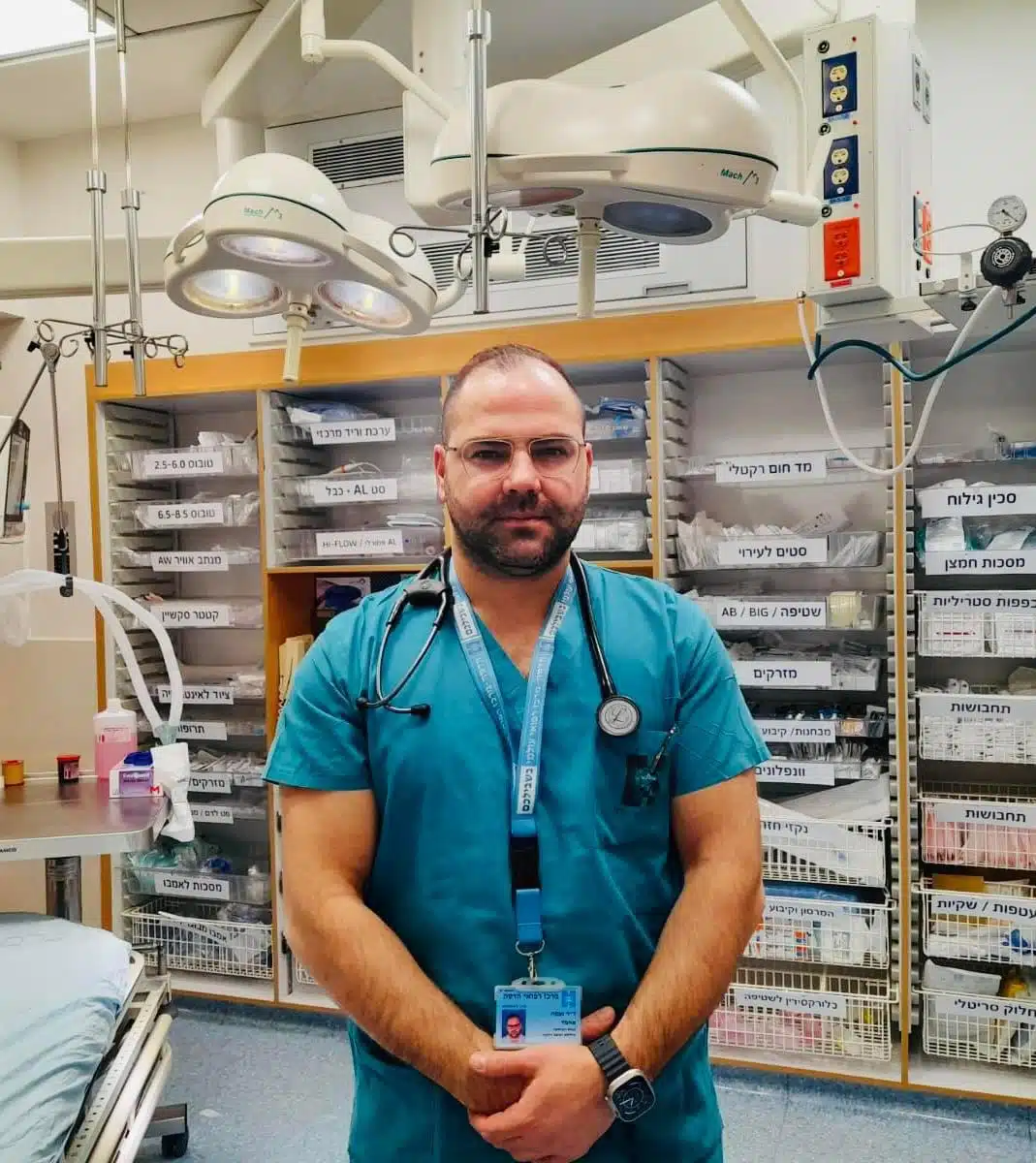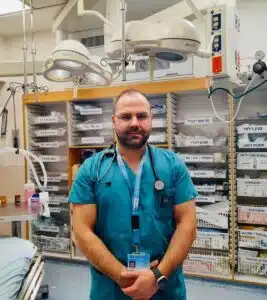‘We’ll do our best to save lives’: IDF rescue delegation arrives in southern Turkey
150 search, rescue and medical experts getting to work after survey team scanned areas affected by deadly earthquake; IDF Medical Corps prepares to establish field hospital.
A delegation of 150 military rescue experts arrived in southern Turkey early Tuesday, as the country grappled with the aftermath of a devastating earthquake that killed thousands of people in the region. An initial, smaller team had flown in on Monday.
The Israel Defense Forces released photos of the team and supplies loading onto a plane at Israel’s Nevatim airbase, and landing in the Turkish city of Adana pre-dawn, and said the search and rescue operation would begin immediately.
Hours ahead of the flight, the head of the Israel Defense Forces aid delegation, Col. (Res.) Golan Vach, spoke to reporters about the mission.
“Some 150 rescue experts are prepared to leave for Turkey in the next few hours. Of these, a third are headquarters and intelligence, and two-thirds have rescue, medical, and engineering capabilities,” said Vach, who is the commander of the IDF National Rescue Unit and a former officer in the IDF Home Front Command.
Vach said it was the unit’s 31st expedition in the past 40 years. “We feel a great privilege to reach out to our neighbors and [their] citizens,” he said.
He said the powerful 7.8-magnitude earthquake and the secondary 7.5-magnitude quake that rocked the same area in southeastern Turkey and northern Syria was a “disaster on a large scale.”
“The most significant earthquake that [we went to] was in Haiti. Since then, there have been no earthquakes of this magnitude,” Vach said.
“We will do our best to save lives and help the Turkish people,” he added.
The aid delegation of Home Front Command officers — mostly reservists — and several Fire and Rescue Service officials departed after midnight on Tuesday, “and upon landing, will immediately begin the rescue and assistance mission,” the IDF said in a statement.
The IDF said the delegation — which landed in the city of Adana — was prepared for the harsh winter weather too. It was expected to operate in the Adana and Gaziantep areas.
On Monday afternoon, a small search and rescue team departed for Turkey to survey the area to get an initial picture of the situation on the ground, before the larger delegation headed in.
The Foreign Ministry was weighing a third flight containing humanitarian items and medicine.
Defense Minister Yoav Gallant meanwhile approved the IDF to establish a field hospital in Turkey, according to the needs of Turkish authorities, his office said.
Earlier Monday, the IDF said the Medical Corps was preparing to send a delegation that would establish a field hospital in the affected area.
Gallant held an assessment with IDF chief Herzi Halevi on Monday night, during which they discussed the military aid to Turkey and approving the field hospital, his office said.
Hebrew-language media reports suggested a field hospital delegation may depart for Turkey as early as Tuesday evening.
The military has dubbed the operation, “Olive Branches.”
The IDF Home Front Command is regularly dispatched around the world to assist in natural disasters, including earthquakes, wildfires, flooding, and building collapses. A team sent to Surfside, Florida, in 2021, helped head up rescue efforts at a deadly condo collapse.
Prime Minister Benjamin Netanyahu said earlier Monday that Israel also plans to send aid to Syria, including tents, medication, and blankets.
Israel considers Syria a hostile state, and the two do not have diplomatic ties. However, during the neighboring country’s bloody civil war, the IDF carried out a massive humanitarian operation to aid Syrian civilians.
But Syrian sources vigorously denied requesting aid from Israel, and IDF spokesman Ran Kochav told reporters that the military was not involved in potential aid to Syria.
Earlier Monday, President Isaac Herzog spoke with Turkish leader Recep Tayyip Erdogan to offer Israel’s condolences on the losses suffered in the deadly earthquake.
Herzog briefed Erdogan on the assistance Israel was sending, and told him that he met earlier in the day with Prime Minister Benjamin Netanyahu and opposition leader Yair Lapid and that they assured him the country is united in its desire to help Turkey, the president’s office said.
Erdogan thanked Herzog and expressed his appreciation that Israel was willing to stand with Turkey in its hour of difficulty, it said.
Erdogan also sent his deepest condolences for the terror attack that killed seven Israelis in East Jerusalem last month, the statement added.
Herzog was instrumental in restoring ties between Jerusalem and Ankara last year.
Also on Monday evening, the Tel Aviv municipality building was lit up in the colors of Turkey’s flag in an expression of solidarity with the victims.
The earthquake death toll was at least 4,300 people in both Turkey and Syria as of early Tuesday. Hundreds were still believed to be trapped under rubble, and the toll was expected to rise, as rescue workers searched mounds of wreckage in cities and towns across the area.
The quake was also felt by some residents of Israel, although there was no damage reported.
Article by By EMANUEL FABIAN
Times of Israel staff and agencies contributed to this report.
Hadassah Hospital medical staff have joined this operation
Much success to the Hadassah doctors who were called to the flag and left as part of the Israeli delegation to establish a field hospital in Turkey.
“We are going on a mission for Hadassah and the State of Israel to help as much as possible to the wounded in the field and to give of ourselves wherever we are needed,” they said with their cheers.
The team included:
Dr. Mark Romain, Senior Physician in the Intensive Care Unit, Specialist in Nephrology and Anesthesia, Dr. Yuval Maroz, Specialist in Anesthesia, Dr. Avraham Alpert, Specialist in Emergency Medicine and Dr. Itai Bezel, a pediatrician.
Visit the IDF homepage for more information







 Naama, an expert in emergency medicine and the management of acute emergencies and trauma, replaced Prof. Kobi Assaf, who was appointed as the director of the emergency medicine unit at the Hadassah Medical Center.
Naama, an expert in emergency medicine and the management of acute emergencies and trauma, replaced Prof. Kobi Assaf, who was appointed as the director of the emergency medicine unit at the Hadassah Medical Center.


